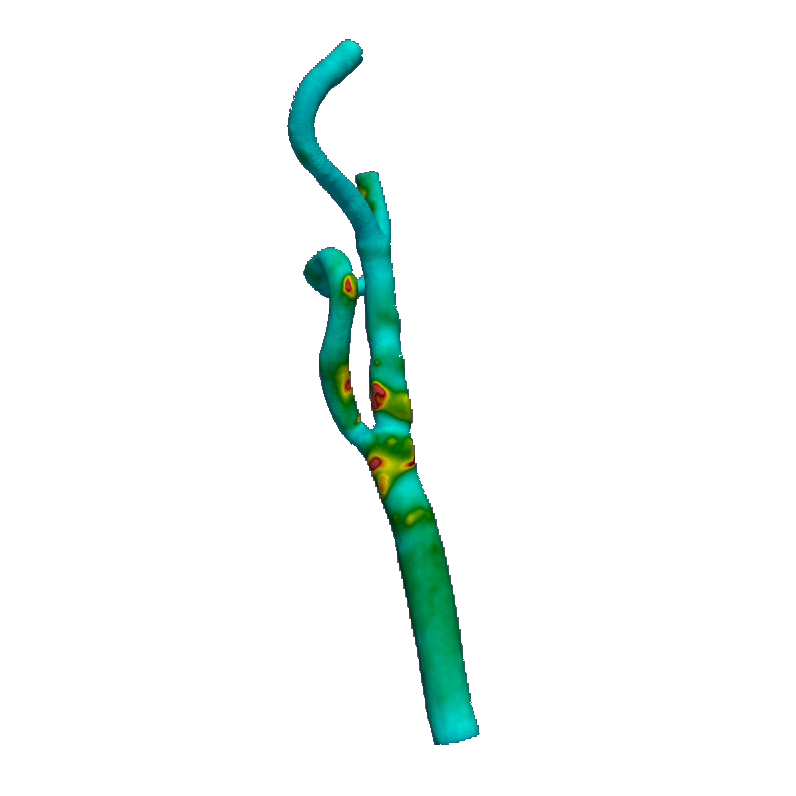The only way to predict the future is to create it
An Invitation from the founders
Why Join Us?
- Lead innovation in medical simulations with advanced CFD technology.
- Collaborate globally with top researchers, healthcare professionals, and engineers.
- Contribute to groundbreaking solutions that bring personalized medicine to life.
What’s In It for You?
Are You Ready?
Supported by







Gain insights from the world's top experts
Learn how:
- to set up patient-specific insilico models for endovascular disease conditions
- to analyse high-resolution Large Eddy Simulation of carotid stenosis and brain aneurysm
- to set up fully non-Newtonian blood viscosity models based on patients' CBC tests
Frequently asked questions
What is Bio-CFD Foundation and what does it do?
Bio-CFD Foundation specializes in the integration of computational fluid dynamics (CFD) in biomedical research and healthcare applications. It focuses on simulating fluid dynamics within biological systems to improve the diagnosis and treatment of conditions such as cardiovascular diseases, brain aneurysms, and respiratory disorders. The foundation also contributes to innovation in personalized medicine through advanced simulation techniques, supporting both research and clinical applications.
How does computational fluid dynamics (CFD) improve healthcare outcomes?
CFD provides detailed simulations of fluid flow, such as blood or air, in complex biological systems. By accurately modeling how these fluids behave under various conditions, CFD helps healthcare professionals better understand diseases like atherosclerosis or aneurysms. This information can be used to create personalized treatment plans, optimize surgical procedures, or design more effective medical devices. Ultimately, CFD enhances the precision of diagnostics and interventions, leading to better patient outcomes.
What kinds of medical simulations does Bio-CFD Foundation work on?
The foundation focuses on a variety of medical simulations, primarily related to fluid flow dynamics in vascular and respiratory systems. Some of the key applications include blood flow analysis for cardiovascular conditions, airflow simulation for respiratory diseases, and predicting the impact of medical devices on blood circulation. These simulations help in developing patient-specific treatment strategies and improving medical technologies.
Can medical simulations help with personalized medicine?
Yes, one of Bio-CFD Foundation's primary goals is to contribute to the advancement of personalized medicine through CFD. By simulating an individual patient’s unique anatomical and physiological characteristics, the foundation helps develop treatment strategies tailored to the specific needs of each patient. This approach increases the effectiveness of interventions and reduces risks associated with generalized treatments.
How can I collaborate or partner with Bio-CFD Foundation?
Bio-CFD Foundation actively collaborates with universities, research institutions, healthcare organizations, and industry leaders to advance the field of computational biomedical research. Those interested in partnerships can reach out via the foundation’s website for opportunities in research collaborations, internships, and joint projects that push the boundaries of medical simulation and CFD technologies.
What is NeuroCFD™?
NeuroCFD™ is an advanced Computational Fluid Dynamics (CFD) protocol designed for personalized neurovascular medicine. It provides neurovascular interventionalists with high-fidelity simulations based on patient-specific data, helping to make more objective management decisions. NeuroCFD™ is particularly useful for the development of endovascular repair (EVR) devices and streamlining in silico trials.
How does NeuroCFD™ create patient-specific simulations?
NeuroCFD™ relies on three main diagnostic inputs: vascular imaging (e.g., CTA or DSA), Transcranial Color-Coded Doppler Ultrasonography (TCC DU) for blood flow conditions, and blood count data (platelet count, plasma viscosity, and RBCs count). These inputs are used to create accurate 3D models of patient vascular systems and simulate blood flow behavior.
Is NeuroCFD™ available as open-source software?
Yes, the open-source version of NeuroCFD™ is known as NeuroSolve. It was released under an open-source license in response to global medical challenges, particularly during the COVID-19 pandemic. The software is available for research and educational purposes and can be accessed on GitHub
Can NeuroCFD™ be used for real-time clinical decision-making?
NeuroCFD™ is designed for research and educational purposes and is not suitable for direct real-world medical decision-making. The simulations produced by the software are intended to support medical research and development but should not be used as a substitute for approved medical diagnostics or treatments
What are the hardware requirements for running NeuroCFD™ simulations?
NeuroCFD™ can be run on high-performance computers for optimal performance, but it also supports PC-based simulations. This flexibility allows researchers to perform complex simulations on various hardware setups, depending on the computational demands of their specific studies
